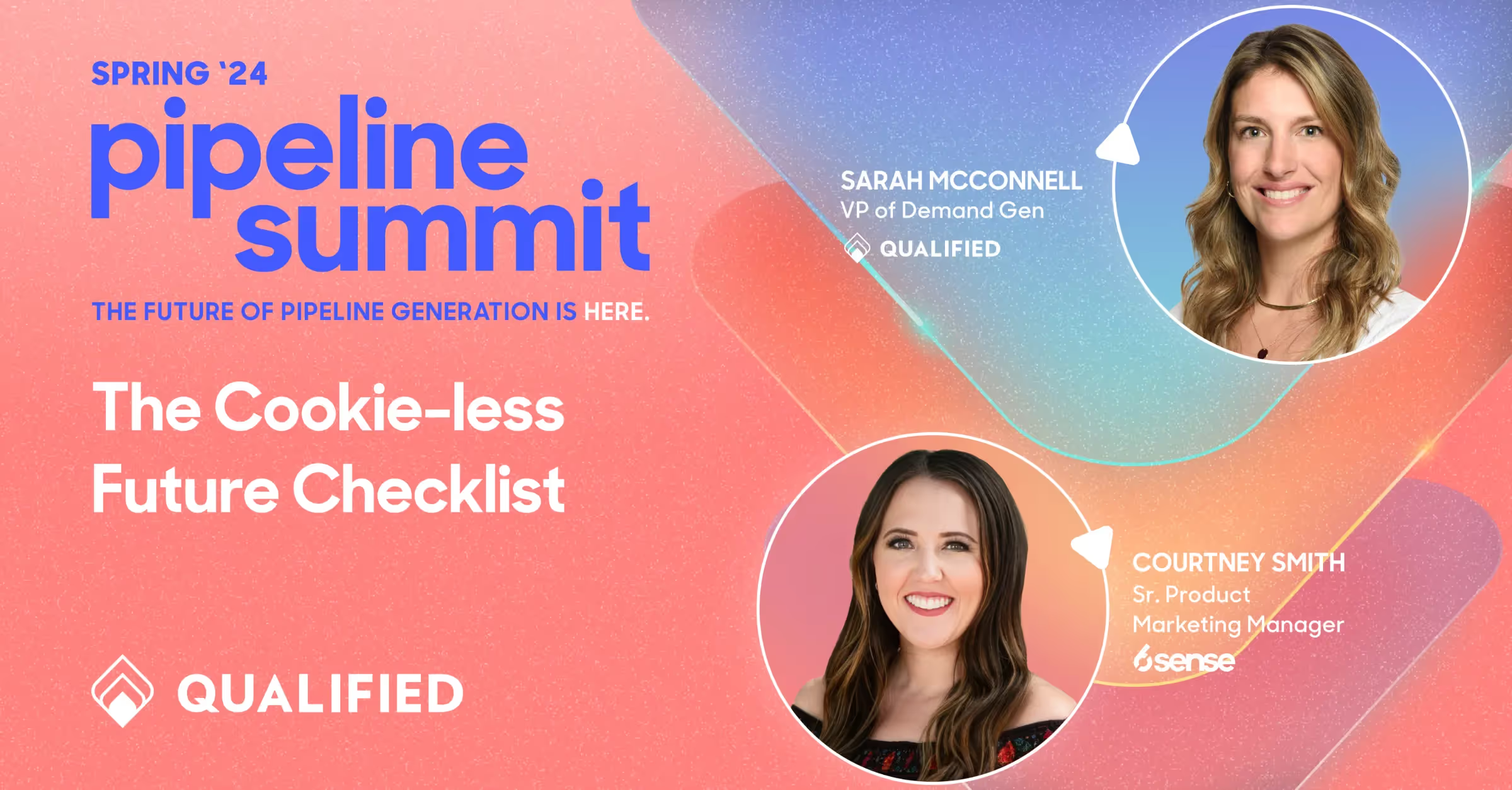The Cookie-less Future
As Google does away with third-party cookies, learn what marketing teams need to prepare for and rethink when it comes to their data strategies.





As Google does away with third-party cookies, learn what marketing teams need to prepare for and rethink when it comes to their data strategies.


Stay up to date with weekly drops of fresh B2B marketing and sales content.
As Google does away with third-party cookies, learn what marketing teams need to prepare for and rethink when it comes to their data strategies.



Stay up to date with weekly drops of fresh B2B marketing and sales content.
As Google does away with third-party cookies, learn what marketing teams need to prepare for and rethink when it comes to their data strategies.



Stay up to date with weekly drops of fresh B2B marketing and sales content.
As Google does away with third-party cookies, learn what marketing teams need to prepare for and rethink when it comes to their data strategies.



Discover how we can help you convert more prospects into pipeline–right from your website.